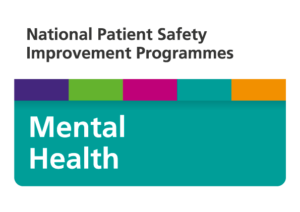Reducing restrictive practice in mental health care
Posted: 6th July 2021
A new project that seeks to reduce the use of restrictive practice within mental health services has been launched by the Patient Safety Collaborative (PSC) at the Yorkshire & Humber Academic Health Science Network (AHSN). 
Working in partnership with the NHS England’s Mental Health Safety Improvement Programme and the National Collaborative Centre for Mental Health (NCCMH), the project will look at supporting dedicated teams or wards across the region to test and adopt a range of evidence-based interventions for reducing restrictive practice with mental health inpatients.
Restrictive practice involves using measures such as; restraint (to prevent, restrict or subdue movement of another person), seclusion (confinement in a room or physical space) and rapid tranquilisation (use of sedative medication by injection).
A range of evidence-based change ideas have been developed and tested in practice by the NCCMH and through this work the PSC will build on this, working with teams and service users across the Yorkshire and Humber region to provide quality improvement (QI) coaching and skills training, co-design further change ideas, support testing in practice and develop measurement plans to show impact. It will also seek to share learning and best practice across all sites.
Melanie Johnson, programme manager at the Yorkshire & Humber AHSN Patient Safety Collaborative, said: “Using restrictive practice in mental health care settings is often a last resort but can be distressing for all involved. We want to reduce the incidences of restrictive practice in inpatient mental health settings and by working collaboratively to understand what works with service users and those who deliver these services, this project can help us to ensure we can provide better care for those with mental health needs.”
South West Yorkshire Partnership NHS Foundation Trust have worked with the NCCMH to trial the programme and in 18-months, the site saw a 60% reduction in the number of restrictive practice incidents, with the biggest reduction seen in the number of physical restraints which fell by 69%.
Since the trial ended in March 2020, the site has continued with this work and has reported a calmer ward environment, staff and service users are feeling more empowered and staff stress and burnout has reduced.
Claire Wilkinson, a Matron at South West Yorkshire Partnership NHS Foundation Trusts, said: “This project allowed us to form much better therapeutic and trusting relationships between staff and patients on the ward. It has allowed us to work in a much more collaborative manner and gave patients more autonomy over their care needs. In turn, this has led to a reduction in restrictive interventions as patients are feeling more valued in terms of their treatment and they feel listened to by nursing staff.
“The QI methodology promotes a drive of changes from within the team. Staff at all levels and service users have influence and ownership of changes that are most meaningful to them and this promotes the generation of ideas and engagement and investment from the team.
“The best people to understand the triggers for restrictive practices, and therefore the things that might reduce the need for these interventions, are the ward team and service users. The QI approach very much embraces this and emphasises a bottom-up approach, tailored to the needs of individual wards.”
